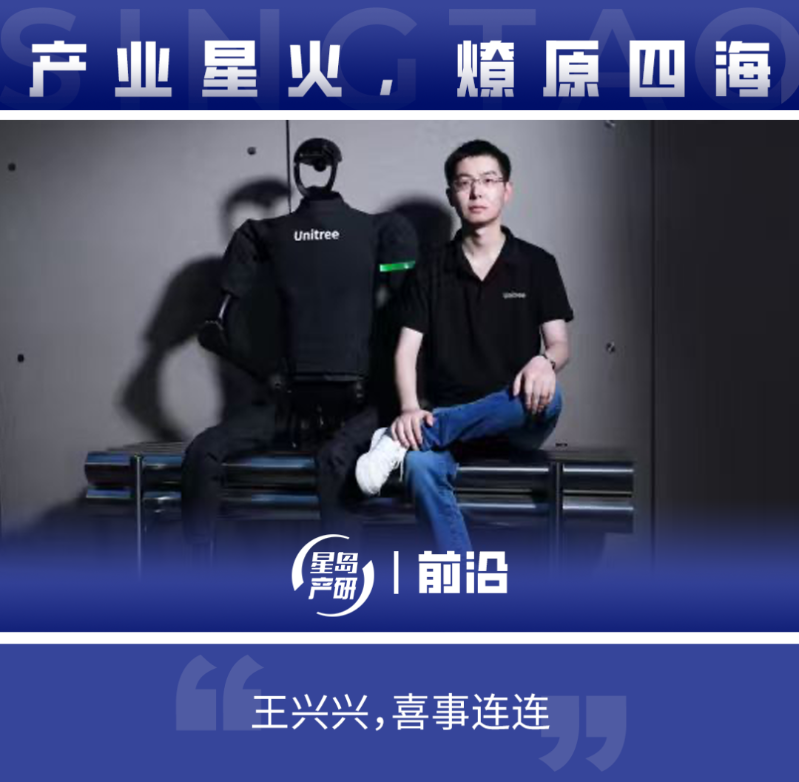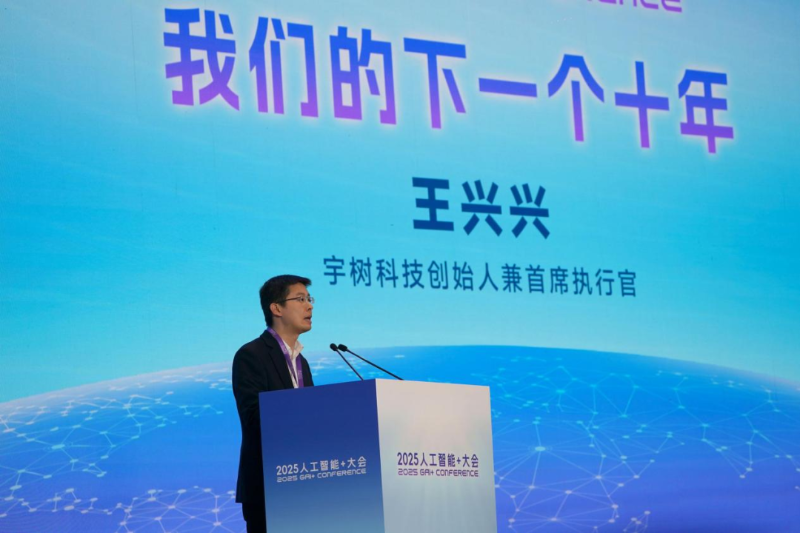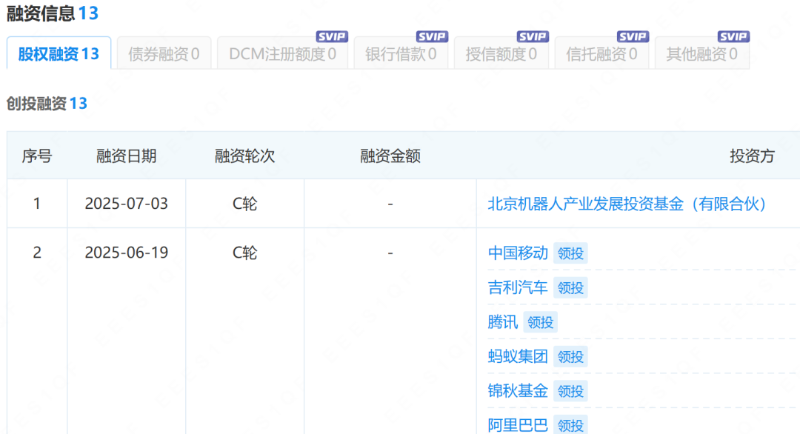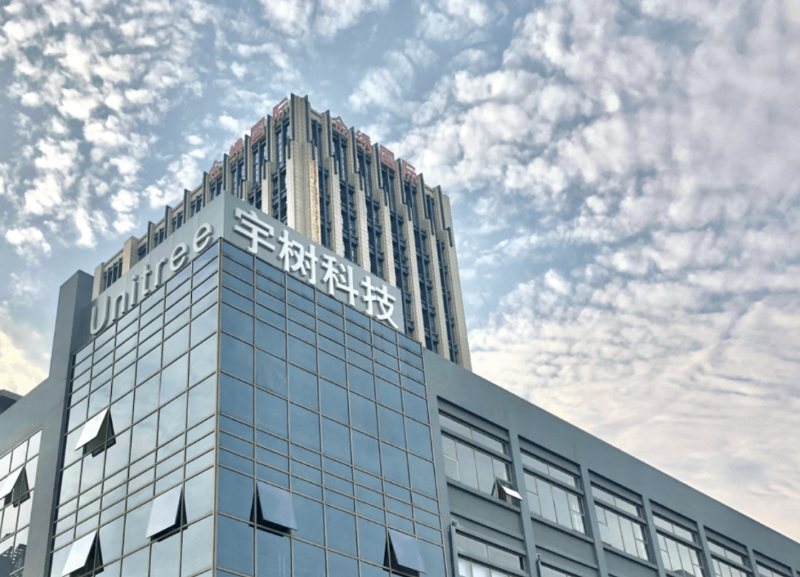On the Verge of Listing: Unitree Technology Is Just One Step Away
![]() 11/20 2025
11/20 2025
![]() 605
605

By Cao Anxun, Trainee Reporter of Sing Tao Daily, Reporting from Shenzhen
Wang Xingxing, the founder and chairman of Unitree Technology, has recently encountered a series of favorable developments.
On November 15, at the Artificial Intelligence Industry Talent Development Conference held in Chongqing, Wang Xingxing was appointed as a visiting professor at the Chongqing Institute of Artificial Intelligence. On the same day, news surfaced that Unitree Technology had completed its IPO tutoring, and a video showcasing robots engaging in combat at the "China's Top Technology Exhibition" went viral on social media.
The day after attending the Chongqing conference, Wang Xingxing swiftly traveled to Beijing. On November 16, at the "2025 Artificial Intelligence+" Conference, Wang Xingxing announced, "Unitree's humanoid robots can now execute most work actions, whether through offline pre-learning or real-time imitation and replication," which attracted widespread public attention.

This has also fueled more speculation about Unitree Technology's path to listing.
IPO Race: Unitree Takes the Lead
On November 15, the China Securities Regulatory Commission (CSRC) website disclosed that Unitree Technology had completed its IPO tutoring on November 10 and officially entered the tutoring acceptance phase.

From signing the tutoring agreement on July 7 to its completion, Unitree Technology finished the relevant process in just 132 days, significantly shorter than the typical 6-12 month tutoring period for A-shares. This sets the fastest record for embodied AI companies this year. Influenced by this, on November 17, A-share humanoid robot concept stocks experienced collective morning fluctuations, with some stocks showing notable gains.
The next step will serve as Wang Xingxing's "graduation exam" before his first foray into the capital market.
An industry insider familiar with corporate IPO processes told Sing Tao Daily that when the sponsor institution deems the company ready, it will apply to the securities regulatory bureau for the "graduation exam," also known as the tutoring acceptance. Generally, the acceptance agency's tutoring acceptance work should not exceed 20 working days. Upon passing the acceptance, the securities regulatory bureau will issue a "Completion of Acceptance Work Letter," which is the "passport" for the company to formally submit its listing application. The company must submit its prospectus within the 12-month validity period; otherwise, it will have to undergo tutoring again.
The insider pointed out, "If it does not involve the sponsor institution supplementing and revising materials, the company's progress will be rapid once it enters the CSRC's tutoring acceptance phase, generally able to submit its prospectus within a month. The acceptance progress is the same regardless of which exchange the prospectus is submitted to."
This progress aligns with Unitree's previously disclosed plan to submit its prospectus between October and December.
With Unitree Technology completing its IPO tutoring, it has taken a leading position in the race among the "Big Three" humanoid robot companies to go public.
In mid-November, Zhiyuan Robotics completed its share reform, a prerequisite for initiating IPO work; while Leju Robotics' parent company, Leju Intelligence, filed for tutoring registration with the Shenzhen Securities Regulatory Bureau in October, intending to go public for the first time.
A Billion-Dollar Capital Newcomer
As a highly sought-after tech star company in recent years, Unitree Technology has received substantial investment, boasting a "luxury investment group" that includes state-owned capital, renowned investment institutions, and leading internet giants.
Data from Qichacha shows that Unitree Technology has secured 13 rounds of venture capital financing. The most recent occurred in July this year when the Beijing Robot Industry Development Investment Fund (Limited Partnership), with participation from Beijing state-owned assets, made an additional investment in Unitree Technology; in June, Unitree Technology completed the closing of its Series C financing, which began late last year. This round was led by funds under China Mobile, Tencent, Jinqiu Fund, Alibaba, Ant Group, and Geely Capital, with most existing investors participating in follow-on investments.
The amounts of the most recent rounds of financing have not been publicly disclosed. Industry estimates place Unitree Technology's valuation between 12 and 15 billion yuan.
The tutoring registration report indicates that Wang Xingxing directly holds 23.8216% of the company's equity and controls 10.9414% through Shanghai Yuyi Enterprise Management Consulting Partnership (Limited Partnership), totaling 34.7630%. After Unitree Technology goes public, his net worth is expected to soar, making him a new super-rich individual.

An individual from the robotics industry chain told Sing Tao Daily that there are too many start-ups in this sector, with the vast majority still burning investors' money. Without core technology, they are just fleeting phenomena; only a few companies with state-owned backgrounds and renowned investment institutions can survive long-term.
Unitree Technology's strong performance also supports its confidence in going public. Unlike most peers still incurring losses, Unitree Technology has achieved consistent profitability.
An individual close to Unitree Technology told Sing Tao Daily that the company has been consistently profitable in its financial statements since 2020, with its star product, the quadruped robot dog, holding over 60% of the global market share, and its humanoid robot shipments also ranking among the top globally. Wang Xingxing announced at the June Summer Davos Forum that the company's annual revenue has exceeded 1 billion yuan.
Large Models Remain a Weakness
Public data shows that in 2024, the sales proportions of Unitree Technology's quadruped robots, humanoid robots, and related component products were approximately 65%, 30%, and 5%, respectively. Among them, about 80% of the quadruped robots are applied in research, education, and consumer sectors, while 20% are used in industrial sectors such as security inspection and firefighting; humanoid robot products are all applied in research, education, and consumer sectors.

As Unitree Technology heads to the exchange, the market is also scrutinizing its technological capabilities and performance prospects.
Some argue that the current application of Unitree Technology's main products is constrained by university project funding, with personal consumer demand not yet fully released and satisfied; Sing Tao Daily also noticed at the High-Tech Fair that in the "Artificial Intelligence and Robotics" pavilion, university teachers were inquiring about prices at various robotics company booths, hesitating upon hearing the quotes, but sales staff quickly offered discounts if the products were for university research; some also compared Unitree Technology's R&D investment with other leading robotics companies, considering it overly conservative.
This is one of the common pain points faced by most domestic robotics companies. Large model investments are substantial, and companies need to balance reality and the future, delivering performance to investors while planning for the future. An industry insider pointed out that AI and robotics company IPOs compete on R&D depth, with capital favoring long-term accumulation; Unitree has many robotics patents, Leju has a stable educational scene, and Zhiyuan has fast algorithm iteration.
Wang Xingxing also admitted at the 2025 World Robotics Conference main forum that for robot bodies, the current hardware is sufficient, and the biggest challenge limiting the large-scale application of humanoid robots lies in the insufficiency of robot large models, with their current development stage similar to 1-3 years before the release of ChatGPT.
Looking towards future development, he called for global collaboration and ecosystem co-construction, working closely with open-source communities to reduce innovation costs, and jointly establishing comprehensive robotics ethics and safety standards with global partners to ensure technology always develops towards "goodness."

In Wang Xingxing's view, if the past decade was the sprouting and exploration phase of the robotics industry, the next decade will be its growth and blossoming period—a critical moment for robots to transition from "capable of movement" to "capable of performing tasks," with robotics technology landing in factories, communities, and homes, driving robots to truly integrate into life.
The market is also anticipating how Unitree Technology, known for its "hardware strengths," will enhance its AI decision-making capabilities and build a "software-hardware integration" ecosystem in the next decade, enabling robots to integrate into daily life and become a long-lasting enterprise in both the capital and consumer markets.
GGII (Gaogong Robotics Industry Research Institute) stated in the "Blue Book on the Development of China's Humanoid Robotics Industry (2024)" that despite technological bottlenecks and challenges faced by the domestic humanoid robotics industry, with the application of technologies such as AI large models, the industry will begin to enter a fast track of development, predicting that the average annual growth rate of China's humanoid robotics sector will exceed the global average, reaching nearly 38 billion yuan by 2030.







